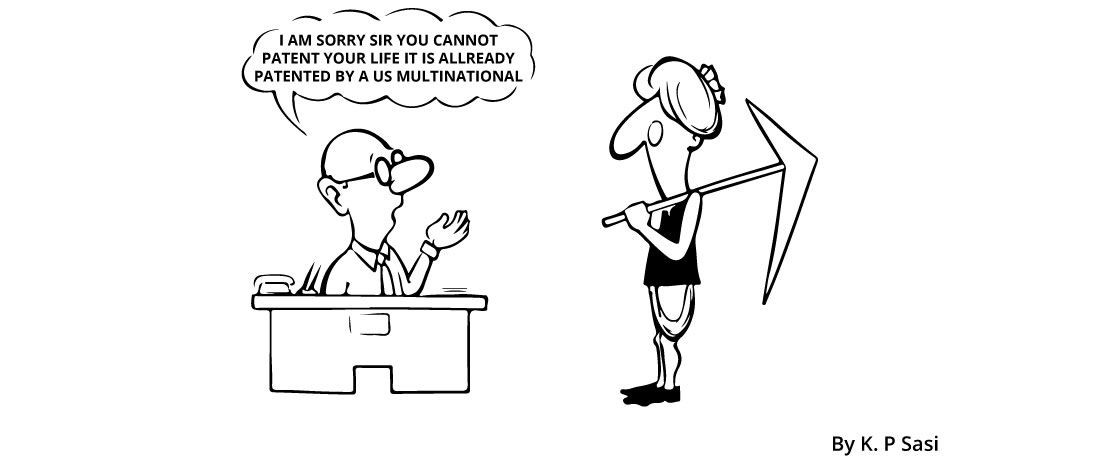Published in Daily Fintech by Author: Arunkumar Krishnakumar
I must credit the research behind this post to Keir Finlow Bates. Keir is an entrepreneur based out of Finland, where he runs a Blockchain research company. I recently came across his research report on the Blockchain patent market.
It was refreshing to see that the report was published on LinkedIn and free for everybody to access and benefit from. It had good coverage, understandable trends, a few obvious names at the top, and a few disappointing stats too. Keir had spent three days researching on Blockchain patent information on ‘google patents’ and compiled the statistics in his report.
Before we get into the findings of the report, I just wanted to discuss the question, “Do patents matter at all?”. I believe, the answer is “It depends”. It depends on your willingness to defend them – if you are the patent holder.
With 97% of all patents, the costs are not justified. The inventor spends the money filing the patent, but do not reap any benefits. 50% of patents are expired as inventors do not pay the maintenance fees. So why file a patent at all?
Patents make sense if your product is extremely complex and hard to develop, and if the costs of defending the patent are affordable/justified. It also helps with perception (that you own the product IP), and posturing (that you will defend it).
However, defending a patent takes years, and costs millions of dollars. So it may not necessarily be an option for a startup with a differentiated product and shallow pockets. It may also not make sense if the invention’s life span is relatively shorter. By the time the patent battle is fought in courts, the life of the product would be over.
Patents are often very narrowly defined, and getting around them shouldn’t necessarily be hard work for a smart competitor/imitator. In a conversation with a startup CEO I met recently, she revealed that she wasn’t so fond of patenting her product. She reasoned that she had to give away a lot of information about her product during the patenting exercise, that it makes it easier for a competitor to create a close enough version of it.
In the case of Blockchain, I feel, patents are a KPI to mark industry and thought leadership than protecting IP. Apart from a handful of architectural improvisation in Blockchain, innovation has been largely incremental.
Another point to ponder is that Blockchain is a technology that knows no boundaries. As there are several Blockchain friendly island jurisdictions, patenting within major jurisdictions like the US, Europe or China may be meaningless. However, the race for getting on top of the patent list is still on.

Source: Keir’s report
Coming back to Keir’s analysis, one key dimension I missed on it was China. It’s no news to us that China is racing ahead of the rest of the world in patenting its inventions with most emerging technologies like AI, Blockchain and Quantum Computing.
Research on patent databases Patentics and Incopat about a year ago identified that Alibaba was leading the Blockchain tally, even ahead of IBM. Of the top 36 companies with at least 20 Blockchain patents, about 50% of them were Chinese firms including BAT.
Keir’s analysis was performed on a Google patent, which supposedly includes China Patents – but the data in the report indicates otherwise. The key takeaway from the reports is that,
- Bank of America leads the tally with 60 filed and 24 granted patents in the US.
- IBM had over 200 filings and 16 granted patents, and continue their investments in Blockchain R&D.
- Challenging the big names, Chainfrog really stole the thunder, with over 16 filed and 4 granted patents.
- Apple, Google and Goldman Sachs disappointed with 0, 1 and 2 granted patents to their names respectively. However, it may be a calm before the storm for these leading brands.
One key point stands out for me. Is the system of patenting fundamentally broken? If I spent two years of my life creating a complex product, addressing a huge market, I should be able to patent it, and defend my patent. Cost shouldn’t be a barrier to defend my work.
Instead of raising the innovation bar for competitors/imitators, the patenting system has perhaps raised the cost bar for inventors to defend their IP.
Arunkumar Krishnakumar is a Venture Capital investor at Green Shores Capital focusing on Inclusion and a podcast host.
I have no positions or commercial relationships with the companies or people mentioned. I am not receiving compensation for this post.

